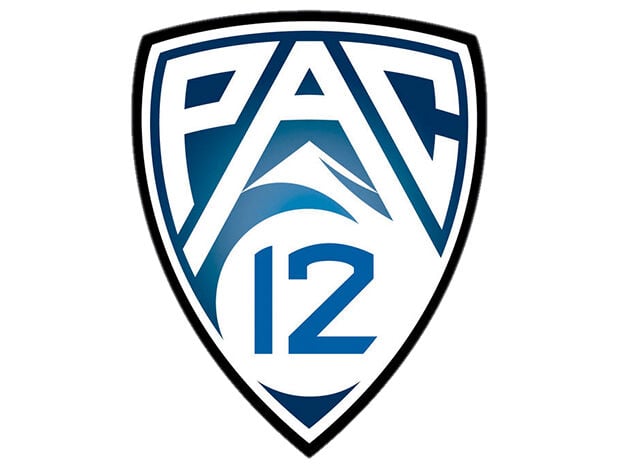The Pac-12 Conference has pulled the plug on all sports until at least January because of the coronavirus pandemic.
The announcement was made shortly after 1 p.m. Tuesday, and comes after the Big Ten Conference announced that it was postponing football until the spring.
The Pac-12's announcement impacts the University of Arizona's football, men's basketball, women's basketball, women's volleyball, women's soccer and gymnastics teams. The Wildcats' women's basketball team has been a trendy pick to make an NCAA Tournament run, while the men's team has been restocked with players from overseas.
Pac-12 commissioner Larry Scott said in a news release that the league will explore options to play in the new year "when conditions change," and noted that the league will "stay in close contact with the NCAA" regarding the NCAA Tournament.
California and Arizona have been hit especially hard by COVID-19 in the last two months, while Seattle was the western epicenter of the outbreak earlier in the spring. The Pac-12 consists of 12 schools — Arizona, ASU, Cal, Colorado, Oregon, Oregon State, Stanford, USC, UCLA, Utah, Washington and Washington State — located in six different states, each of which has had varying level of success in slowing the virus.
Pac-12 makes it official that all sports postponed through the end of the calendar year. There's been a strong belief throughout the summer that nonconference basketball would be out. Now it's about when to start and if any of it can be "bubbled" unless virus situation changes.
— Bruce Pascoe (@BrucePascoe) August 11, 2020
All affected student-athletes impacted by the postponement will have their scholarships honored, the league said in a news release. The Pac-12 is also encouraging the NCAA to "grant students who opt our of competition this academic year an extra year of eligibility."
“The health, safety and well-being of our student-athletes and all those connected to Pac-12 sports has been our number one priority since the start of this current crisis," said Scott, who was infected with the virus earlier this summer. "Our student-athletes, fans, staff and all those who love college sports would like to have seen the season played this calendar year as originally planned, and we know how disappointing this is."
Said Arizona State athletic director Ray Anderson: "All of us want to play sports. ... We want to play sports in the worst way, but not at the risk of health and safety."
Added University of Oregon president Michael Schill: "There are too many questions and too much uncertainty."
The NBA, NHL, Major League Baseball and Major League Soccer have all returned in the last month. The NBA and NHL's bubbles in Florida, Edmonton and Toronto have reported almost no new cases of coronavirus. Baseball's truncated season has been marred already by outbreaks on the Marlins and Cardinals.
“Unlike professional sports, college sports cannot operate in a bubble," Scott said. "Our athletic programs are a part of broader campuses in communities where in many cases the prevalence of COVID-19 is significant. We will continue to monitor the situation and when conditions change we will be ready to explore all options to play the impacted sports in the new calendar year.”
The Pac-12 CEO Group, consisting of league presidents and chancellors, met Tuesday to discuss the fate of the 2020 season.
Within the last two weeks, the Pac-12 and Big Ten released league-only schedules in the hope that the altered format would make it easier to pull of a season in the fall. But after new concerns arose connecting COVID-19 to the heart condition myocarditis, the sentiment within the sport changed.
"The mental and physical health and welfare of our student-athletes has been at the center of every decision we have made regarding the ability to proceed forward,” Big Ten commissioner Kevin Warren said in a news release. “As time progressed and after hours of discussion with our Big Ten Task Force for Emerging Infectious Diseases and the Big Ten Sports Medicine Committee, it became abundantly clear that there was too much uncertainty regarding potential medical risks to allow our student-athletes to compete this fall.
“We know how significant the student-athlete experience can be in shaping the future of the talented young women and men who compete in the Big Ten Conference. Although that knowledge made this a painstaking decision, it did not make it difficult. While I know our decision today will be disappointing in many ways for our thousands of student-athletes and their families, I am heartened and inspired by their resilience, their insightful and discerning thoughts, and their participation through our conversations to this point. Everyone associated with the Big Ten Conference and its member institutions is committed to getting everyone back to competition as soon as it is safe to do so.”
The Pac-12 announcement would mean 53 of 130 FBS schools have elected to not play football this fall. That number is expected to grow.





